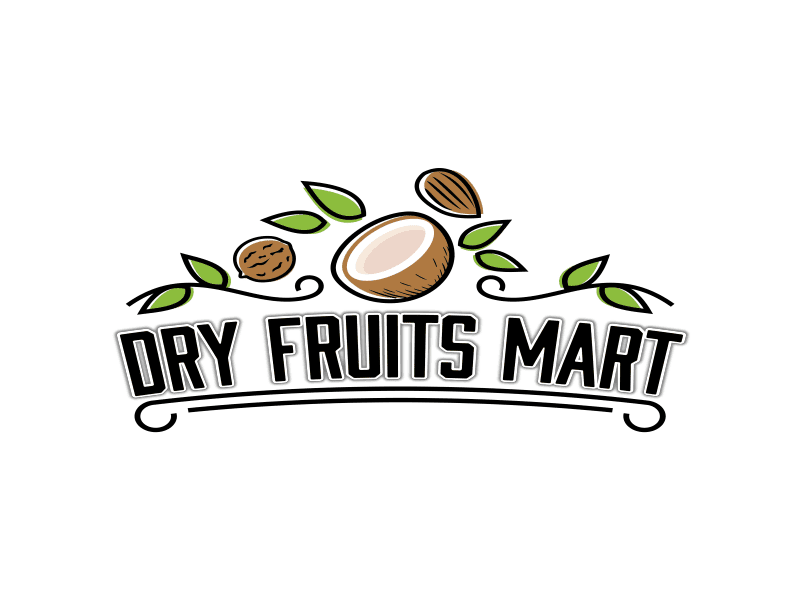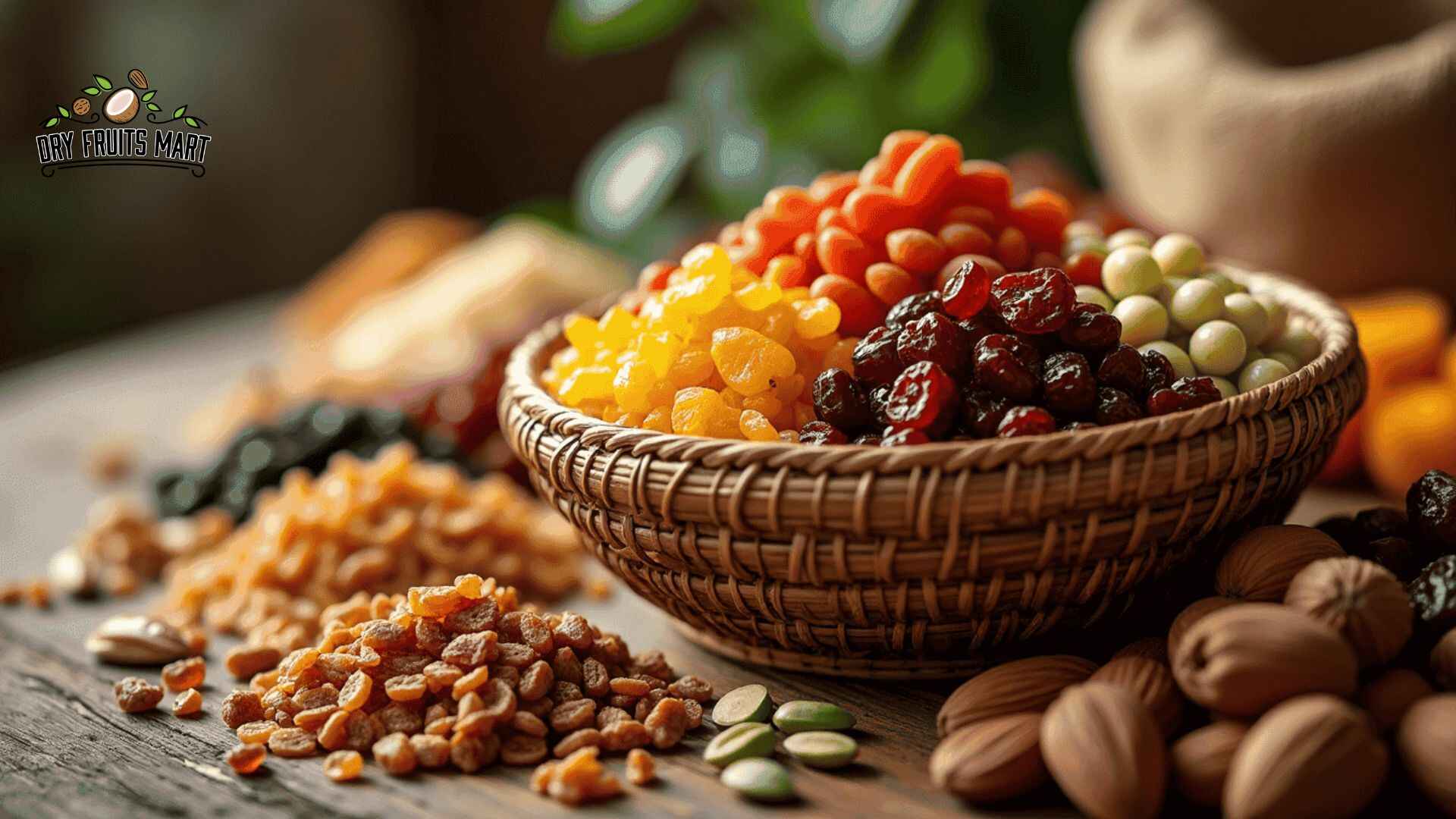Dry fruits are nutritious snacks enjoyed worldwide, but their names can vary across languages. This guide focuses on dry fruits names in Urdu and English, providing a comprehensive list for those interested in these healthful treats. From common varieties to exotic options, readers will discover a wide array of dried fruits and seeds.
The article covers all dry fruits names, their Urdu translations, and dry fruits benefits. It includes popular choices like almonds and raisins, as well as lesser-known varieties. Readers will gain insight into the nutritional value of dry fruits and learn how to incorporate them into a balanced diet. This guide serves as a valuable resource for anyone looking to explore the world of dry fruits in both Urdu and English.
List of Dry Fruits Names in Urdu and English with images
This comprehensive list provides various dry fruits names in Urdu and English, helping readers identify these nutritious snacks across languages.
Almond – بادام (Badam)
Almonds (Badam) are widely consumed dry fruits known for their crunchy texture and nutty flavor. They are rich in vitamin E, healthy fats, fiber, and antioxidants, offering numerous health benefits such as promoting heart health and supporting brain function.
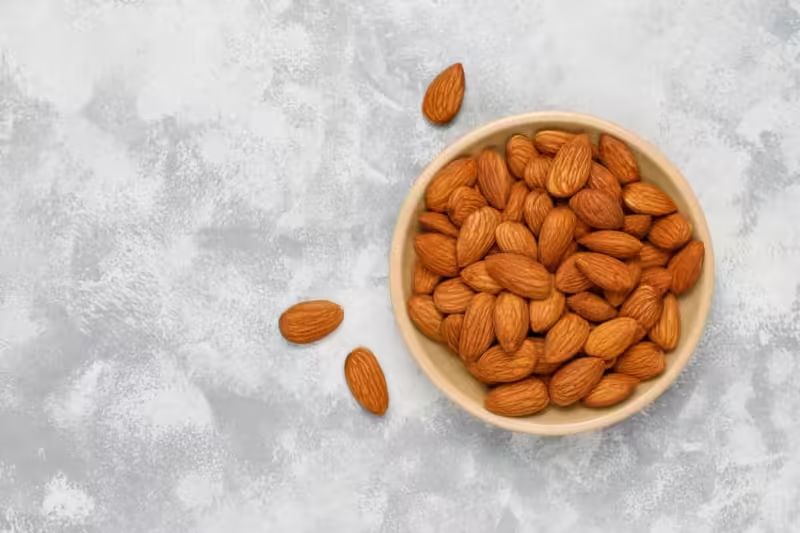
Almonds, or بادام (Badam), are nutritious dry fruits known for their health benefits.
Cashew Nut – کاجو (Kaju)
Cashews are kidney-shaped dry fruits with a creamy, buttery taste. They are a good source of healthy fats, protein, and minerals like magnesium and zinc. Cashews are versatile ingredients used in various cuisines, including Asian and Indian dishes.
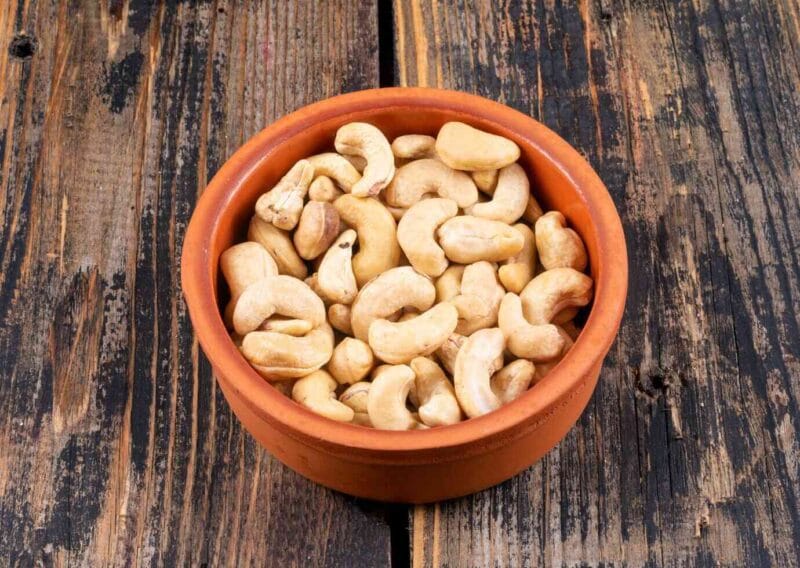
Cashew Nut (کاجو) is a creamy and delicious dry fruit.
Walnut – اخروٹ (Akharot)
Walnuts have a distinct flavor and are highly nutritious. They are rich in omega-3 fatty acids, which are beneficial for heart health. Walnuts also contain antioxidants and vitamins that contribute to overall well-being.
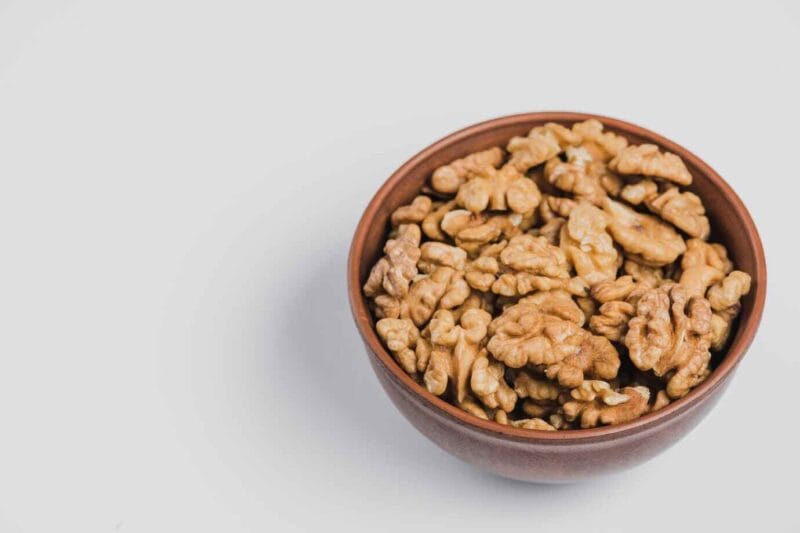
Walnut (اخروٹ) is a nutritious and flavorful dry fruit.
Pistachio – پستہ (Pista)
Pistachios are small, green-colored dry fruits with a slightly sweet and savory taste. They are packed with essential nutrients, including protein, fiber, and healthy fats. Pistachios are often consumed as a snack and used in various culinary applications.
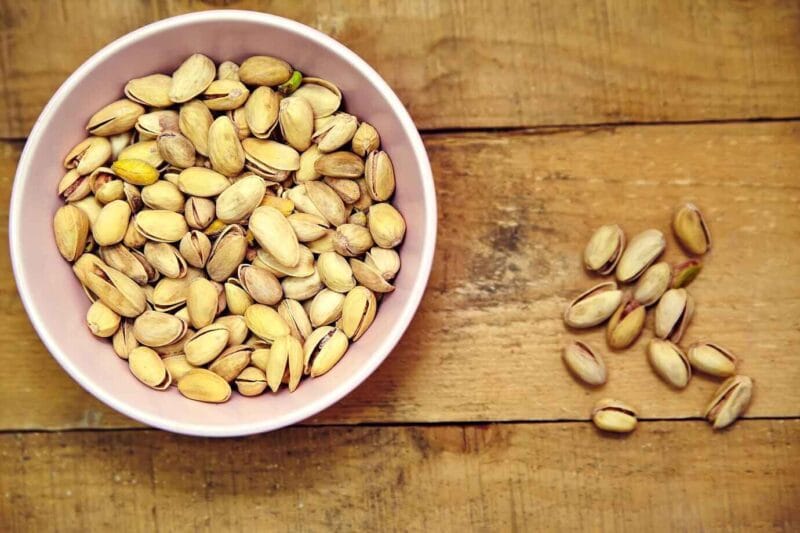
Pistachio (پستہ) is a delicious and crunchy dry fruit.
Hazelnut – فندق (Fanduq)
Hazelnuts are small, round dry fruits with a sweet and nutty flavor. They are rich in healthy fats, protein, fiber, and various vitamins and minerals. Hazelnuts are commonly used in confectionery and as a topping for desserts and salads.

Hazelnut (فندق) is a rich and flavorful dry fruit.
Macadamia Nut – میکادمیا (Macadamia)
Macadamia nuts have a rich, buttery flavor and a smooth texture. They are loaded with healthy fats, vitamins, and minerals. These nuts are often enjoyed as a snack and used in baking and cooking.
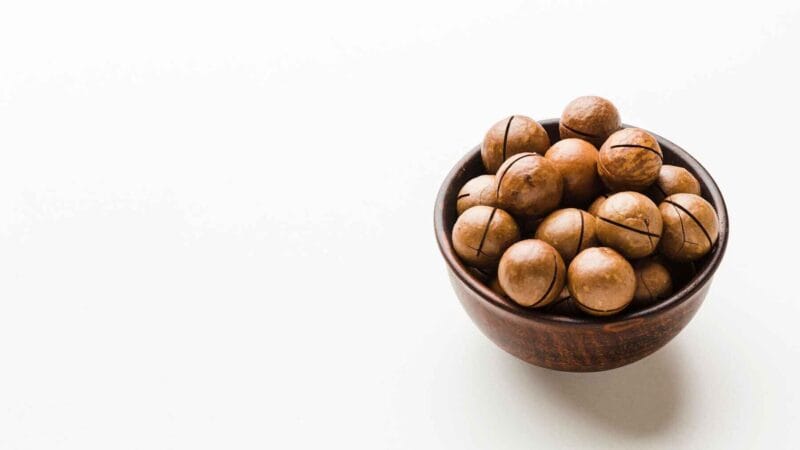
Macadamia Nut (میکادمیا) is a creamy and indulgent dry fruit.
Brazil Nut – برازیلی نٹ (Brazil Nut)
Brazil nuts are large, triangular-shaped dry fruits with a creamy and rich taste. They are a good source of healthy fats, protein, fiber, and selenium. Brazil nuts are often consumed as a snack and used in various recipes.
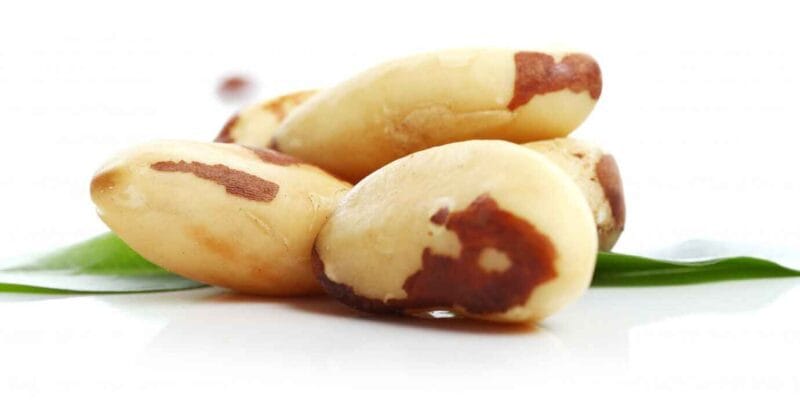
Brazil Nut (برازیلی نٹ) is a rich and nutritious dry fruit.
Pine Nut – چلغوزہ (Chilghoza)
Pine nuts are small, elongated dry fruits that come from pine trees. They have a buttery and slightly resinous flavor. Pine nuts are rich in healthy fats, protein, and antioxidants, and are widely used in Mediterranean and Middle Eastern cuisines.
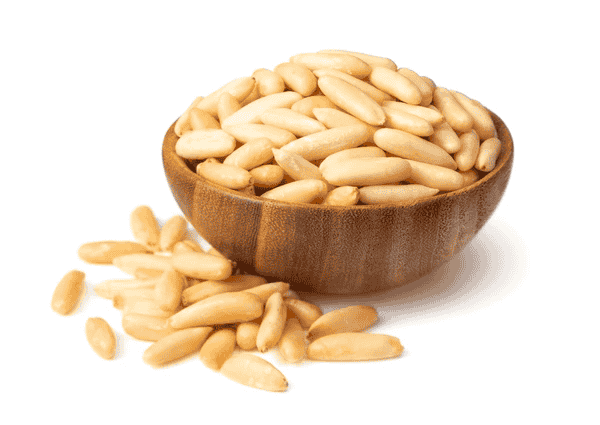
Pine Nut (چلغوزہ) is a flavorful and nutritious dry fruit.
Peanut – مونگ پھلی (Moong Phali)
Peanuts are a popular dry fruit known for their versatility and nutritional value. They are rich in protein, healthy fats, and various vitamins and minerals, making them a valuable addition to a balanced diet.
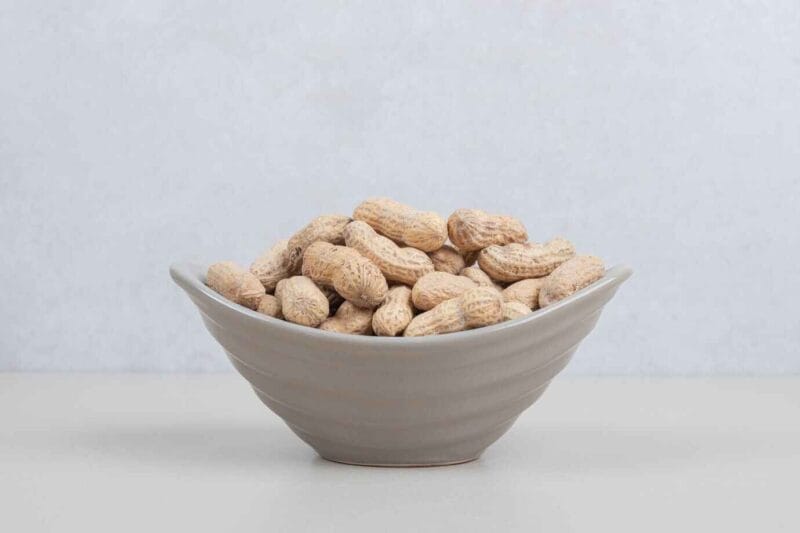
Peanut (مونگ پھلی) is a popular and versatile dry fruit.
Common Dried Fruits and Their Urdu Names
Raisin – کشمش (Kishmish)
Raisins are dried grapes known for their natural sweetness. They are a concentrated source of energy, rich in fiber, vitamins, and minerals such as potassium and iron. Raisins have an influence on improving digestion and help to boost iron levels.
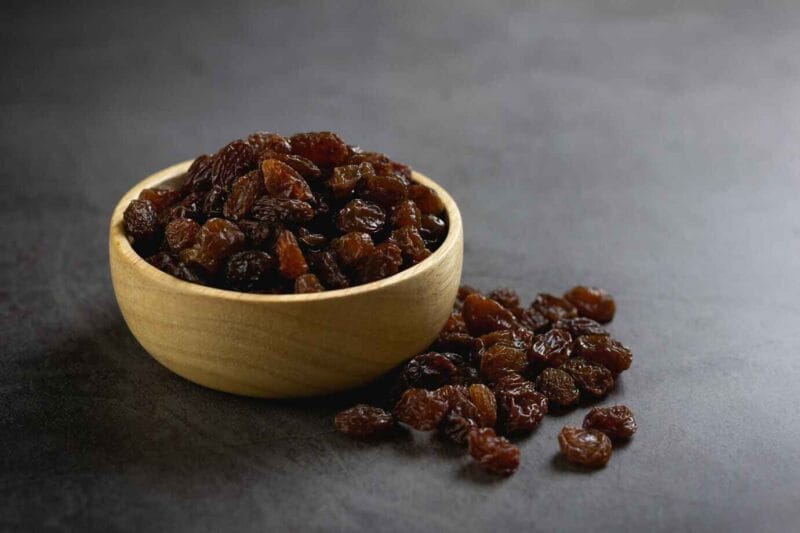
Raisin (کشمش) is a sweet and nutritious dry fruit.
Date – کھجور (Khajoor)
Dates are sweet and chewy dry fruits that come from the date palm tree. They are high in natural sugars, fiber, and antioxidants. Dates are often consumed as a snack and used in desserts, smoothies, and energy bars due to their nutritional value.
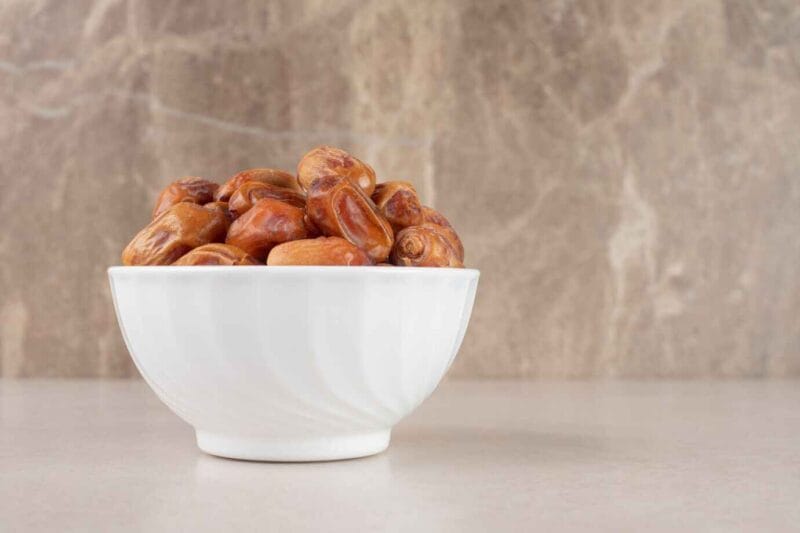
Date – کھجور (Khajoor)
Fig – انجیر (Anjeer)
Figs are soft, sweet dry fruits with a unique texture. They are a good source of dietary fiber, vitamins, and minerals like potassium and calcium. Figs have an impact on maintaining digestive health and are rich in antioxidants.

Apricot (Dried) – خشک خوبانی (Khushk Khobani)
Dried apricots are small, orange-colored fruits known for their tangy and slightly sweet taste. They are rich in fiber, vitamins, and minerals like vitamin A and potassium. Apricots are often used in baking, cooking, and as a topping for cereals and salads.
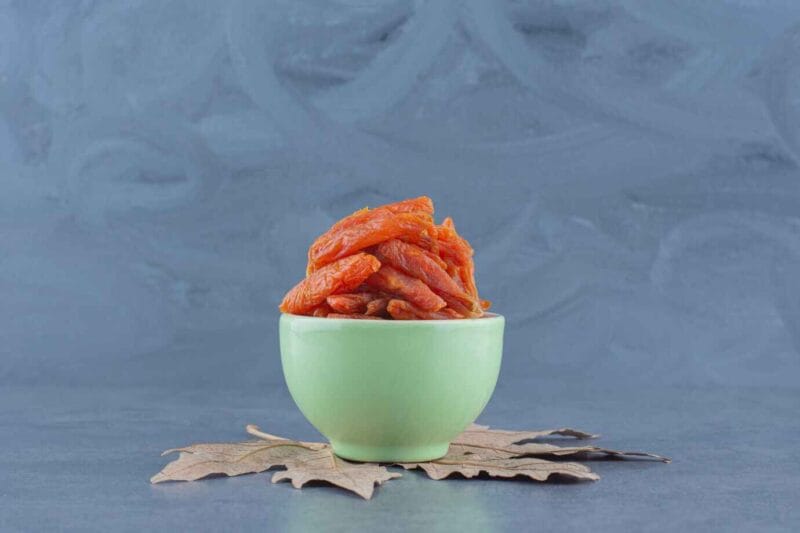
Dried Apricot (خشک خوبانی) is a sweet and tangy dry fruit.
Cranberry (Dried) – خشک کرینبیری (Khushk Cranberry)
Dried cranberries are tart and sweet, often used in trail mixes and baked goods. They are known for their antioxidant properties and potential health benefits.
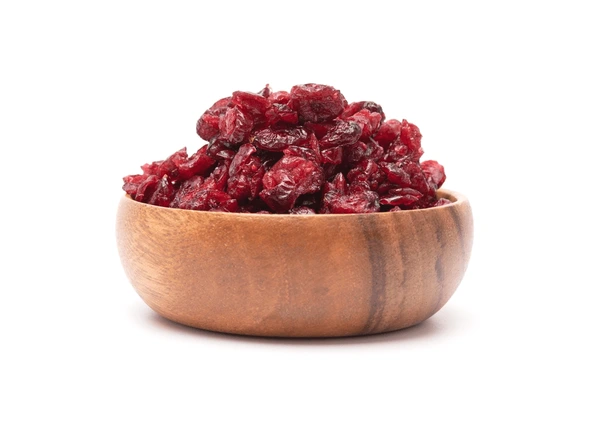
Dried Apricot (خشک خوبانی) is a sweet and tangy dry fruit.
Sultana Raisin – سلطان کشمش (Sultan Kishmish)
Sultana raisins are a variety of seedless grapes that are dried to produce a sweet, golden raisin. They are commonly used in baking and cooking.
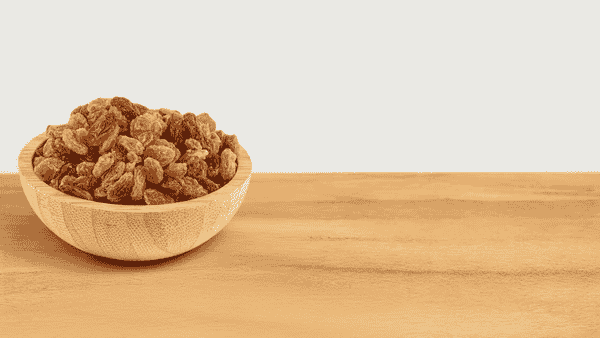
Sultana Raisin (سلطان کشمش) is a sweet and versatile dry fruit.
Dried Cherry – خشک چیری (Khushk Cherry)
Dried cherries offer a sweet and tart flavor. They are often used in baked goods, trail mixes, and as a topping for salads and desserts.
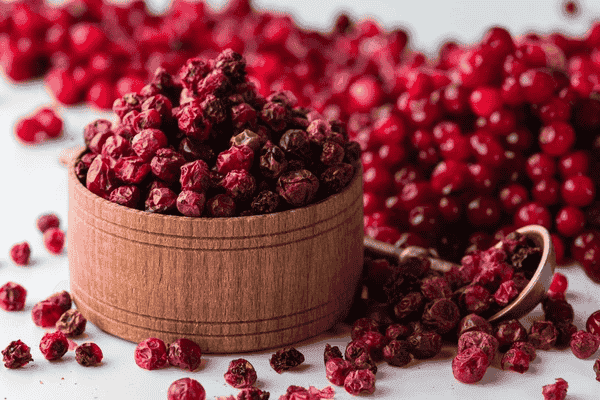
Dried Blueberry – خشک بلیو بیری (Khushk Blueberry)
Dried blueberries retain much of their antioxidant properties and are a popular addition to cereals, muffins, and snack mixes.
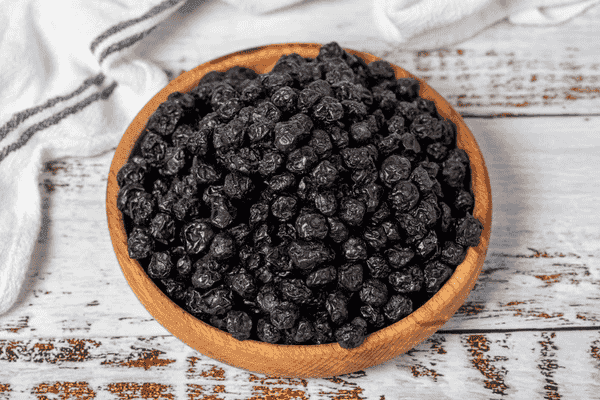
Dried Blueberry (خشک بلیو بیری) is a sweet and antioxidant-rich dry fruit.
Seeds with Their Urdu Names
Pumpkin Seed – کدو کے بیج (Kadoo ke Beej)
Pumpkin seeds, known as “کدو کے بیج” in Urdu, are a rich source of magnesium. Two tablespoons of these seeds contain about 25 percent of the daily recommended dietary allowance. They are also high in zinc, which helps to boost the body’s immune system. Pumpkin seeds have an influence on improving sleep quality due to the presence of the amino acid tryptophan.

Pumpkin Seed (کدو کے بیج) is a healthy and nutrient-rich snack.
Sunflower Seed – سورج مکھی کے بیج (Suraj Mukhi ke Beej)
Sunflower seeds, or “سورج مکھی کے بیج” in Urdu, are crunchy and nutty seeds that are versatile and can be easily added to foods like yogurt and salad. They are rich in vitamin E and fatty acids, which have an impact on skin health. A study by Texas A&M University found that dogs supplemented with sunflower seeds saw improvements in their skin and hair coat.
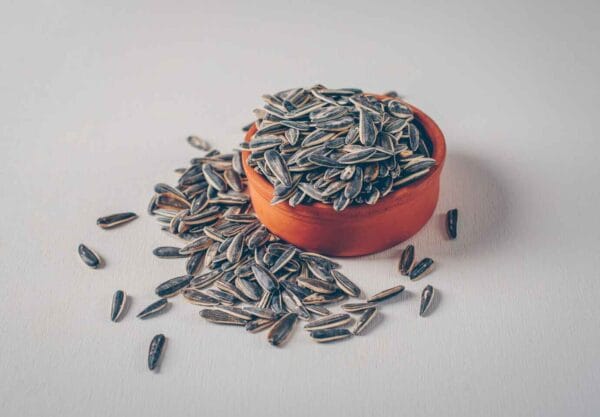
Sunflower Seed (سورج مکھی کے بیج) is a popular and nutritious seed.
Chia Seed – تخم ملنگا (Takhm Malanga)
Chia seeds, known as “تخم ملنگا” in Urdu, are often classified as a superfood. They are an excellent source of omega-3 fatty acids, which help to keep cholesterol levels in check. These tiny seeds can absorb up to 10 times their weight in water, contributing to a feeling of fullness.
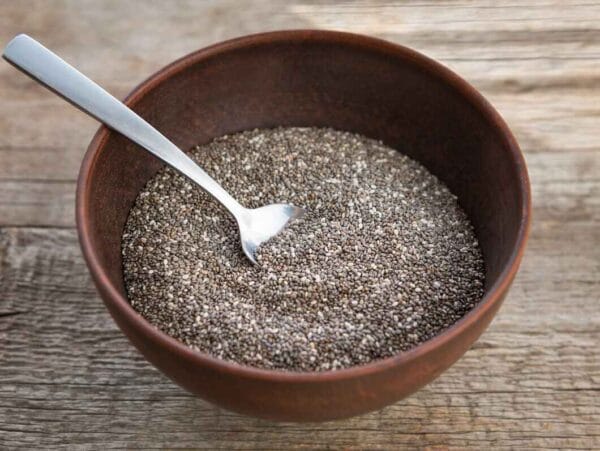
Chia Seed (تخم ملنگا) is a nutritious and versatile seed.
Flaxseed – السی کے بیج (Alsi ke Beej)
Flax Seeds, or “السی کے بیج” in Urdu, are packed with antioxidants and rich in alpha-linolenic acid (ALA), a type of omega-3 fatty acid. ALA has an influence on improving cardiovascular health and may lower the risk of stroke. Flaxseeds also contain more lignans than any other plant foods, which are believed to have cancer-fighting properties.
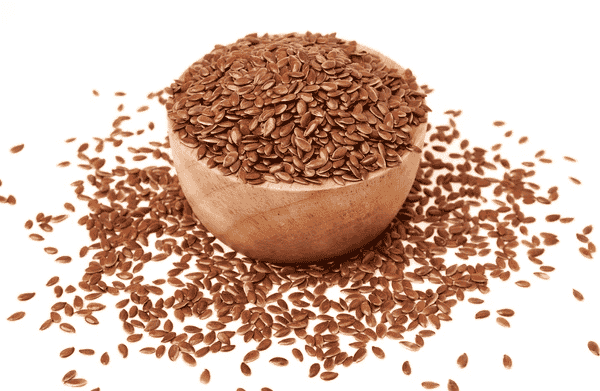
Flaxseed (السی کے بیج) is a nutrient-dense seed.
Sesame Seed – تل کے بیج (Til ke Beej)
Sesame seeds, known as “تل کے بیج” in Urdu, are nutrient-dense and contain a wide array of beneficial compounds like iron, zinc, copper, and vitamins. According to a study published in the Journal of Medicinal Food in 2016, sesame seeds have an impact on increasing the capacity of antioxidants and reducing oxidative stress markers among individuals.
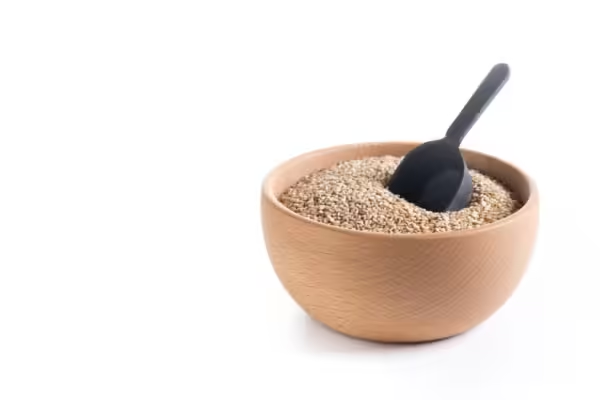
Sesame Seed (تل کے بیج) is a flavorful and versatile seed.
Watermelon Seed – تربوز کے بیج (Tarbooz ke Beej)
Watermelon seeds, or “تربوز کے بیج” in Urdu, are often overlooked but are nutritious additions to the list of dry fruits and seeds.
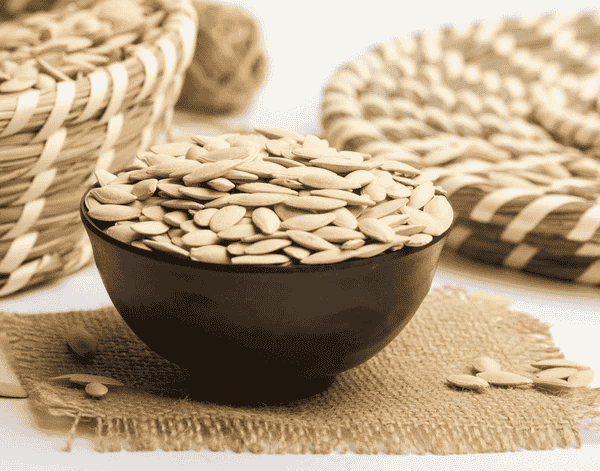
Watermelon Seed (تربوز کے بیج) is a crunchy and nutritious snack.
Hemp Seed – بھنگ کے بیج (Bhang ke Beej)
Hemp seeds, known as “بھنگ کے بیج” in Urdu, are a nutritional powerhouse. They contain over 30% fat and are a complete protein source, containing all nine essential amino acids that the body cannot produce on its own.
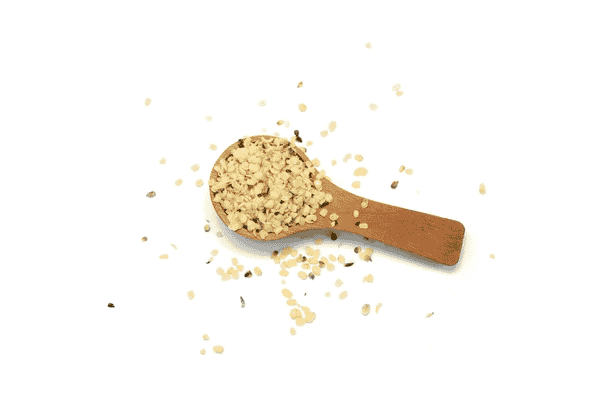
Hemp Seed (بھنگ کے بیج) is a protein-rich and versatile seed.
Poppy Seed – خشخاش کے بیج (Khushkhash ke Beej)
Poppy seeds, or “خشخاش کے بیج” in Urdu, are small but nutritious seeds often used in culinary applications.
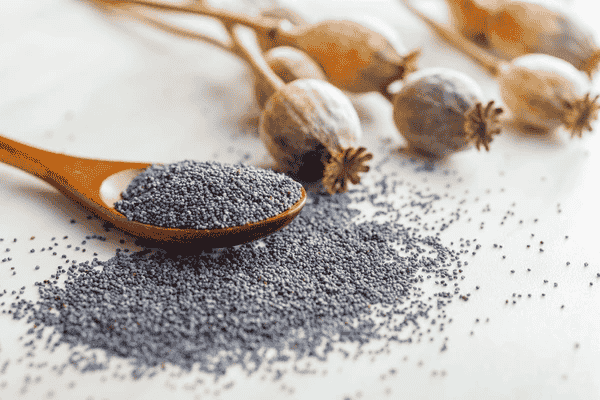
Poppy Seed (خشخاش کے بیج) is a flavorful and aromatic seed.
Basil Seed – تلسی کے بیج (Tulsi ke Beej)
Basil seeds, known as “تلسی کے بیج” in Urdu, are similar to chia seeds in their nutritional profile and ability to absorb water.
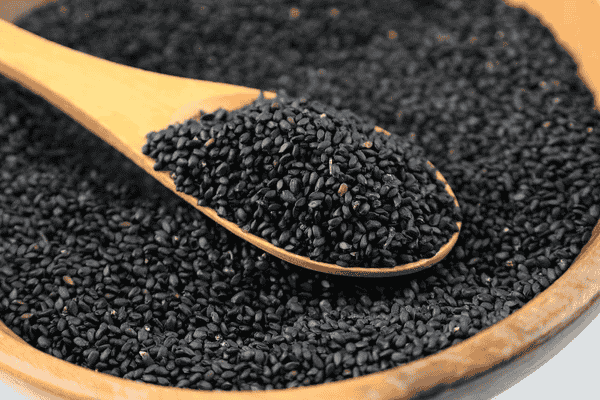
Basil Seed (تلسی کے بیج) is a nutritious and hydrating seed.
Exotic Dry Fruits and Their Urdu Names
Exotic dry fruits offer unique flavors and nutritional benefits. These lesser-known varieties are gaining popularity among health-conscious consumers.
Acai Berry – اکائی بیری (Acai Berry)
Acai berries are small, dark purple fruits native to South America. They are rich in antioxidants and have an influence on promoting heart health.
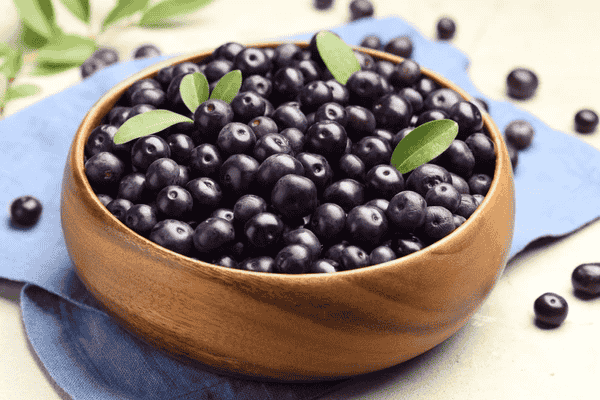
Acai Berry (اکائی بیری) is a superfood packed with antioxidants.
Goji Berry – گوجی بیری (Goji Berry)
Goji berries, also known as wolfberries, are bright red and have a sweet-tart flavor. They are packed with vitamins and minerals, contributing to overall well-being.
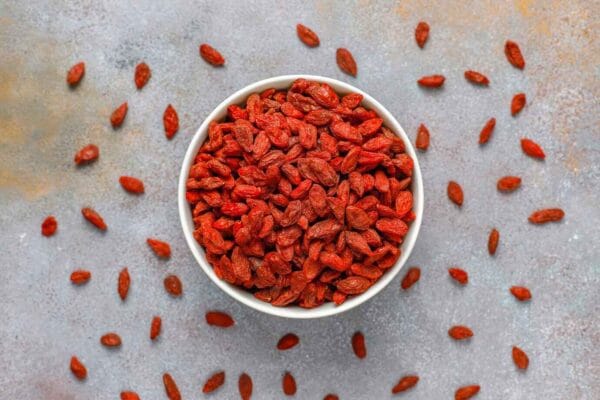
Goji Berry (گوجی بیری) is a nutrient-rich superfood.
Golden Berry – گولڈن بیری (Golden Berry)
Golden berries, also called Inca berries or Cape gooseberries, have a tangy-sweet taste. They are high in vitamins A and C, supporting immune function.
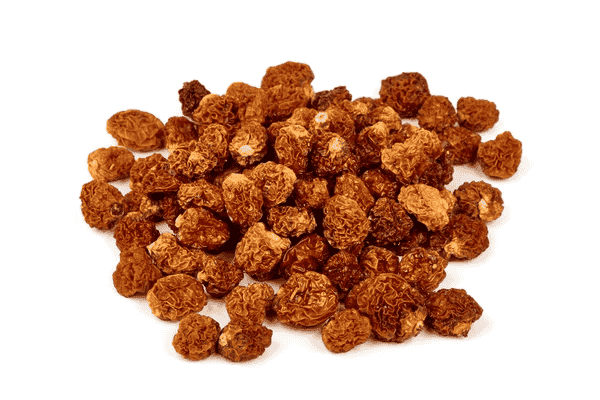
Golden Berry (گولڈن بیری) is a tangy and nutritious fruit.
Dragon Fruit – ڈریگن فروٹ (Dragon Fruit)
Dragon fruit, with its vibrant pink exterior and speckled flesh, is low in calories and high in fiber. It has a mild, slightly sweet taste.

Dragon Fruit (ڈریگن فروٹ) is a tropical fruit known for its vibrant color and unique appearance.
Dry coconut is made from dried coconut meat. It is a great source of healthy fats and fiber, making it a nutritious and satisfying snack option.
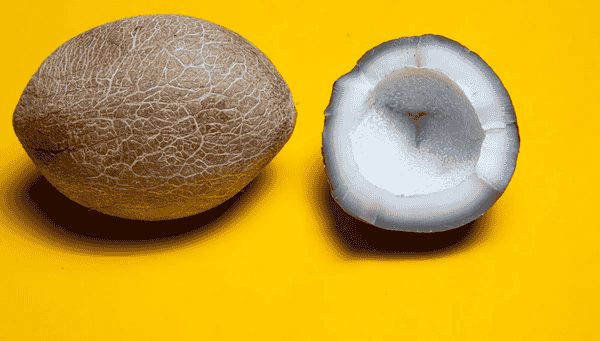
Dry Coconut (خشک ناریل) is a versatile ingredient used in many recipes.
Dried Tamarind – خشک املی (Khushk Imli)
Dried tamarind (imli) has a sweet and sour taste. It has an influence on aiding digestion and is often used in culinary applications.
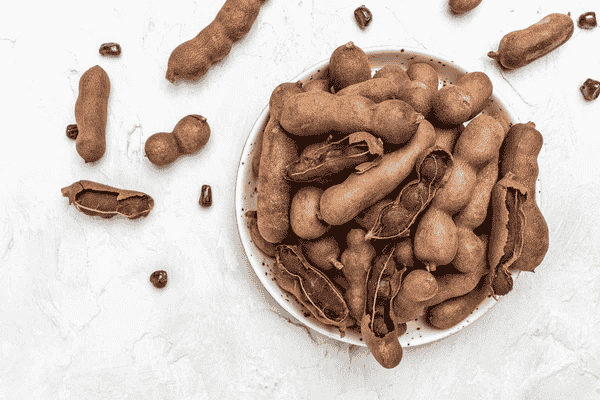
Dried Tamarind (خشک املی) adds a tangy flavor to dishes.
Dried Mulberry – خشک شہتوت (Khushk Shahtoot)
Dried mulberries retain much of their nutritional value and have a chewy texture. They are often added to trail mixes and baked goods.
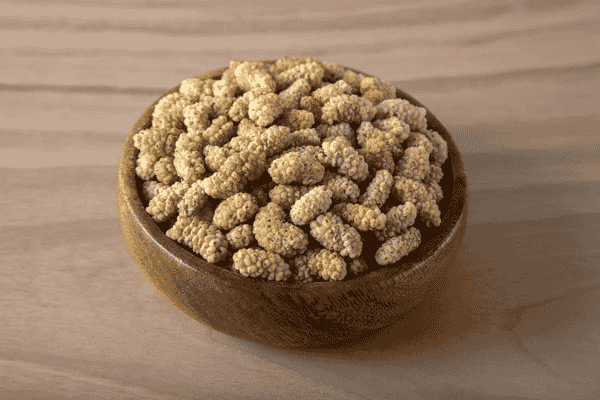
Dried Mulberry (خشک شہتوت) is a sweet and nutritious snack.
Dried Jackfruit – خشک جیک فروٹ (Khushk Jackfruit)
Dried jackfruit has a sweet, tropical flavor. It is rich in fiber and potassium, contributing to heart health.
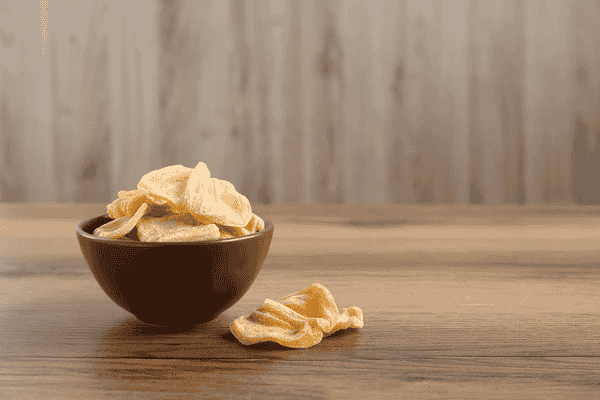
Dried Jackfruit (خشک جیک فروٹ) is a sweet and chewy fruit.
Dried Persimmon – خشک خرما (Khushk Khurma)
Dried persimmons have a sweet, date-like flavor. They are a good source of vitamins and minerals, supporting overall health.

Dried Persimmon (خشک خرما) is naturally sweet and packed with nutrients.
Dried Longan – خشک لانگن (Khushk Longan)
Dried longan fruits have a sweet, musky flavor. They are often used in traditional medicine and have an impact on boosting energy levels.
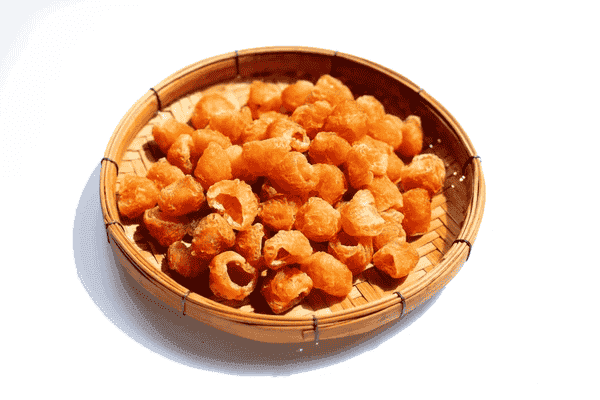
Dried Longan (خشک لانگن) is sweet and aromatic.
Other Dried Fruits with Their Urdu Names
Plum Prune – آلو بخارہ (Aloo Bakhara)
Plum prunes, known as آلو بخارہ in Urdu, are dried plums with a sweet and slightly tangy flavor. They are rich in dietary fiber and have an influence on promoting digestive health. Prunes are often recommended to nourish and tone the intestines, acting as a natural laxative due to their high fiber content.
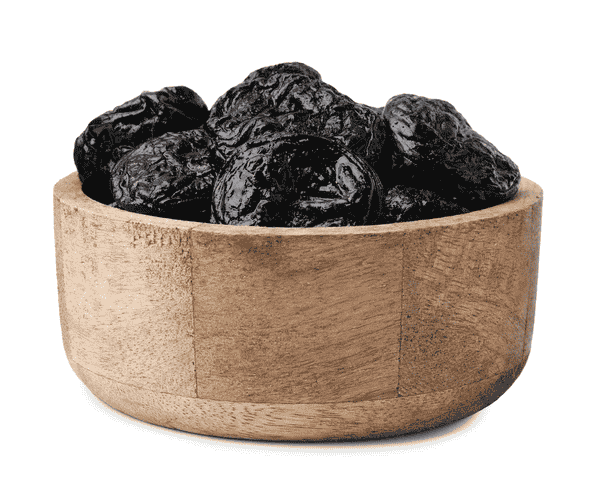
Plum Prune (آلو بخارہ) is a delicious dried fruit with numerous health benefits.
Lychee – لیچی (Lychee)
Dried lychees, or لیچی in Urdu, are a delicious addition to the list of dry fruits. When dried, they retain much of their sweet flavor and nutritional value. Lychees are often enjoyed as a snack or used in various culinary applications.
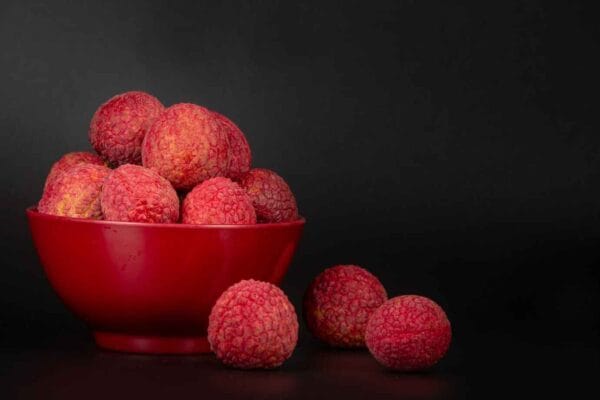
Lychee (لیچی) is a tropical fruit known for its sweet and fragrant flavor.
Jackfruit – جیک فروٹ (Jackfruit)
Dried jackfruit, known as جیک فروٹ in Urdu, has a sweet, tropical flavor. It is rich in fiber and potassium, contributing to heart health. Jackfruit is the largest tree fruit, reaching up to 55 kg in weight and 90 cm in length. When dried, it becomes a concentrated source of nutrients and flavor.
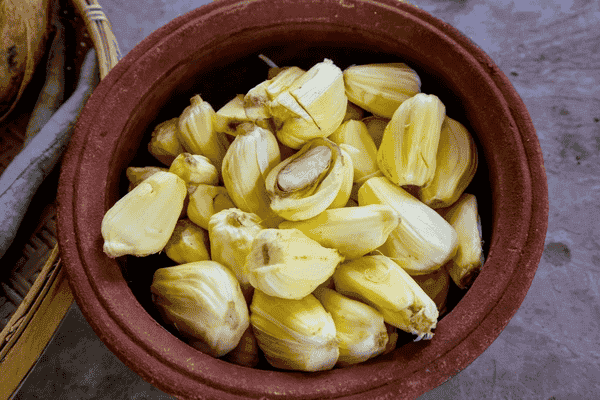
Jackfruit (جیک فروٹ) is a large tropical fruit with a sweet flavor.
Dried Orange Peel – خشک نارنجی چھلکا (Khushk Narangi Chhilka)
Dried orange peel, or خشک نارنجی چھلکا in Urdu, is often used in culinary applications for its intense citrus flavor. It has an impact on adding a zesty taste to dishes and is also used in traditional medicine practices.
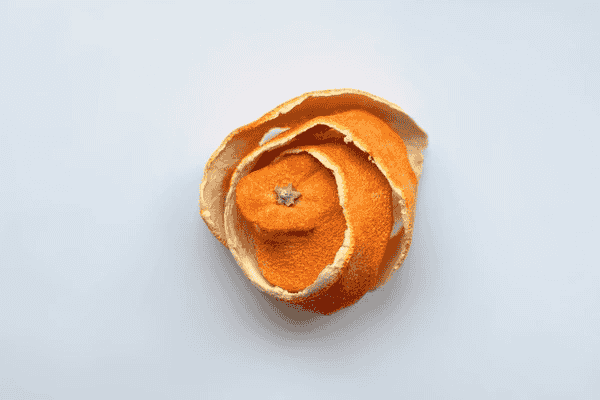
Dried Orange Peel – خشک نارنجی چھلکا (Khushk Narangi Chhilka)
Health Benefits of Dry Fruits
Nutritional Value
Dry fruits are a powerhouse of essential nutrients, offering a concentrated source of vitamins, minerals, and antioxidants. They contain high levels of dietary fiber, healthy fats, and plant-based proteins. For instance, almonds are rich in vitamin E, magnesium, and heart-healthy monounsaturated fats. Walnuts provide omega-3 fatty acids, while dates are an excellent source of potassium and natural sugars.
Heart Health
Consuming dry fruits regularly has a positive impact on cardiovascular health. Studies have shown that nuts like almonds, walnuts, and pistachios can help lower bad cholesterol levels and reduce the risk of heart disease. The high content of monounsaturated and polyunsaturated fats in these dry fruits contributes to improved heart health. Additionally, the antioxidants present in dry fruits help protect against oxidative stress and inflammation, further supporting cardiovascular well-being.
Weight Management
Contrary to popular belief, incorporating dry fruits into a balanced diet can aid in weight management. The fiber content in dry fruits promotes satiety, helping to control hunger and reduce overall calorie intake. For example, pistachios have been found to support weight loss by lowering BMI and waist circumference. However, it’s important to consume dry fruits in moderation due to their calorie density.
Brain Function
Dry fruits have a beneficial influence on cognitive health. Walnuts, in particular, are known for their positive impact on brain function. They contain high levels of omega-3 fatty acids and antioxidants, which support memory and learning abilities. Almonds, rich in vitamin E, have been associated with improved cognitive performance and a reduced risk of age-related cognitive decline.
Digestive Health
The high fiber content in dry fruits contributes to improved digestive health. Prunes, for instance, are well-known for their ability to relieve constipation and promote regular bowel movements. Figs are another excellent choice for digestive health, as they contain enzymes that support the digestive process. Including a variety of dry fruits in the diet can help maintain a healthy gut microbiome and enhance overall digestive function.
Conclusion
Dry fruits and seeds offer a wealth of nutritional benefits and versatile culinary applications. From common varieties like almonds and raisins to exotic options like goji berries and dried jackfruit, these nutrient-dense foods have an influence on improving overall health. Their rich content of vitamins, minerals, and antioxidants contributes to heart health, weight management, and cognitive function, making them valuable additions to a balanced diet. If you want to know which winter fruits are popular in Pakistan please read this article: Winter Fruits in Pakistan.
As we’ve explored the diverse world of dry fruits names in Urdu and English, it’s clear that these foods play a significant role in both nutrition and culture. Whether you’re snacking on a handful of nuts, adding dried fruits to your baking, or incorporating seeds into your meals, the options are endless. If you’re eager to explore even more delicious options and learn about the benefits of dry fruits or want to buy only dry fruits, visit Dry Fruit Mart today! By including a variety of dry fruits in your diet, you’re taking a tasty step towards better health and well-being.
FAQs About Dry Fruits Names in Urdu and English
1. What are the most common dry fruits and their names in Urdu and English?
Answer: Some common dry fruits include:
- Almonds – بادام (Badam)
- Cashews – کاجو (Kaju)
- Raisins – کشمش (Kishmish)
- Dates – کھجور (Khajoor)
- Walnuts – اخروٹ (Akharot)
2. How can I identify dry fruits using their Urdu names?
Answer: You can identify dry fruits by learning their Urdu names and matching them with their English counterparts. Many grocery stores in Pakistan label dry fruits with both names, making it easier to find what you need.
3. Are dry fruits commonly used in Pakistani cuisine?
Answer: Yes, dry fruits are widely used in Pakistani cuisine, often included in desserts, biryanis, and traditional sweets. They add flavor, texture, and nutritional benefits to various dishes.
4. Where can I buy dry fruits in bulk in Pakistan?
Answer: You can purchase dry fruits in bulk from Dry Fruits Store , wholesale markets, or online retailers specializing in dry fruits. Websites like Dry Fruits Mart offer a wide variety of options.
5. What are the health benefits of consuming dry fruits?
Answer: Dry fruits are packed with essential nutrients, antioxidants, and healthy fats. They can help improve heart health, support digestion, provide energy, and contribute to overall wellness when consumed in moderation.
